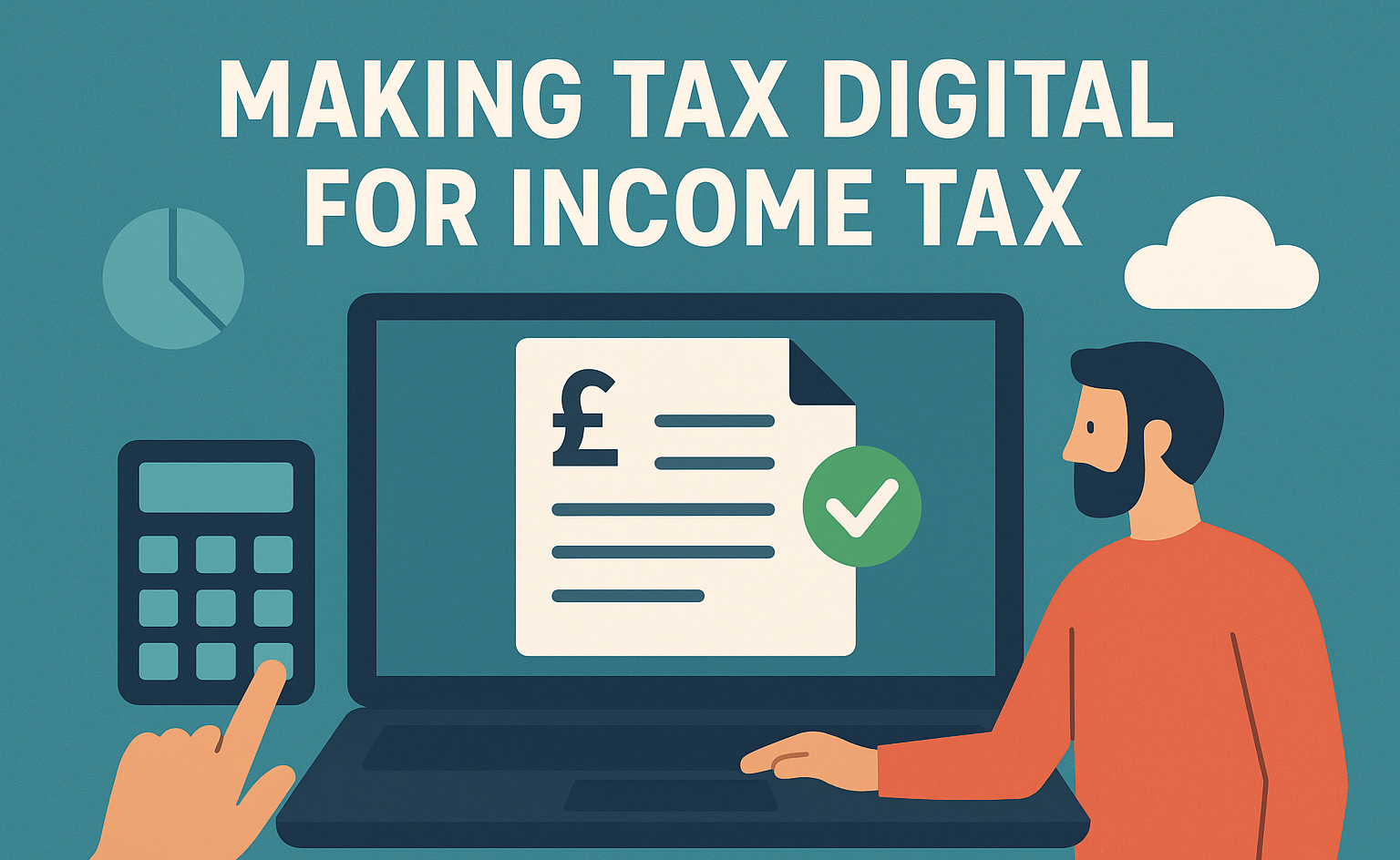How much is my company worth and what can I do to increase its value?
How much is my company worth and what can I do to increase its value?
With tax rises announced in the October 2024 budget, more clients have been asking about succession or exit planning for their company. Before discussing in any great detail it is necessary to establish its value. How much is it really worth?
Whilst you may not complete a sale of your business by 5 April 2025, we’ll explain how a company is valued and what action you can take to increase that value, now and in the future.
How to value a company
It must be emphasised that, particularly for private companies; this is a primarily subjective exercise. So, different persons in different firms, looking at the same business, will likely end up with slightly different valuations – albeit you’d hope them to be in the same ballpark! Listed companies such as those on the FTSE100 are obviously much simpler to value as there is a readily available trading price for their shares.
The two most common valuation methods for valuing a private limited company are:
On an asset basis – This is a simple valuation method based on the value of corporate assets. The starting point is net assets on the balance sheet. Essentially, if the company were to stop trading today, collect in all its debtors, pay all its creditors and sell its assets, its value would be the cash left over. The problem with this method is that most companies are worth more than just their asset value. It does not value the goodwill built up over the years, so the good name, reputation and connections of the business are not accounted for. So if you sold out based on this value, have you really got true value?
This brings us on to the second common valuation method, more likely to be used for sales or agreeing valuations with HMRC
On an earnings basis – An earnings basis takes as its principal assumption that the value of a company is in the earnings (or profits) that it generates. The method of valuing a company on an earnings basis starts by calculating the businesses sustainable level of earnings before interest, tax, depreciation and amortisation (EBITDA) and then applying an appropriate multiple, to give an Enterprise Value. Finally, a cash free/debt free adjustment (which is a mechanism to allow the value of a business with surplus cash to be increased, or the value of a heavily geared business to be reduced by the debt that they carry, both designed to leave only the appropriate amount of working capital that the buyer needs to run the business) is made to arrive at the Equity Value. This is where the subjectivity mentioned at the top of this article comes in. What is an appropriate level of sustainable profits and the right multiplier? If you look at a list of the world’s most valuable companies, it is dominated by technology enterprises. It will come as no surprise to learn then that this market sector is known to have a high multiplier in valuation exercises as their subscription model is thought to give longevity of income.
This all sounds complicated right? Fortunately, at England & Company, we have wide ranging experience in this area and can assist in producing such valuations.

How can I influence the value of my company?
In a sale, for most SME owners, the most important negotiation with a prospective buyer is on the price. You may already know, or you may be unsure how much cash you are willing to accept, to part with the business you’ve put your hard work into. What factors might convince a buyer to up their offer? Here are some areas that can influence your corporate valuation and make it more attractive to prospective buyers.
Maximising EBITDA
The primary way to increase the valuation of a company under the earnings basis is to increase the EBITDA. Not only does a higher EBITDA have the obvious effect of an increased Enterprise Value once multiplied, it often has the additional effect of increasing the multiple factor itself. For example, it may be the case that a business in a certain sector with an EBITDA of £0.5m could achieve a multiple of 4x (to arrive at a £2m valuation), but if it increased to an EBITDA of £1m+ it could attract a wider pool of potential buyers and achieve a multiple of 6x (to arrive at a £6m valuation). Therefore, in this example the doubling of EBITDA from £0.5m to £1m has achieved a tripling of the Enterprise Value from £2m to £6m. To achieve this usually involves reviewing income and expenditure to identify where improvements can be made.
Increase income
This can be done by increasing prices, the number of products sold, or both. Firstly, is pricing still appropriate? In the last couple of years we’ve had high inflation and cost pressures on all businesses. So have prices been increased appropriately to compensate, or has EBITDA been squeezed where revenue has not kept up with costs? If the company offers a premium product, are our prices set to reflect that? When customers believe they receive a high quality in the goods or services offered, they are usually willing to pay more than a lessor quality competitor.
On the product side, this usually means trying to sell existing products to new customers and developing new products to sell to new or existing customers. In the services sector, is the company charging for all work done, including for anything additional to the original brief? Having the right staff in the right positions, utilising well-thought procedures will also deliver benefits to sales. This may be further enhanced with a commission or bonus scheme to incentivise the team.
Control and reduce expenditure
This can be achieved through keeping a control of costs and ensuring that operationally the company is as efficient as possible. In a manufacturing environment, it means staying on top of stock and materials, so wastage is minimalised and ensures the company always pays the best prices for its inputs. Where staff is a large cost, does the company have the right number of people? Too few and it may cost less to hire more people than to keep paying high overtime rates. Too many and the company may be paying additional individuals with no positive effect on revenue generation.
Overhead costs also need to be carefully managed. Is the company overpaying for services like utilities or insurances by not shopping around? Reviewing the necessity of certain overheads on an ongoing basis and being more frugal with expenditure in areas such as travel, entertainment, postage and stationery will help to trim any fat in the business.

Other ways to help enhance value
Getting the balance sheet up to date
This is comparatively simple and something we would encourage all clients to keep on top of on an ongoing basis. When doing their due diligence, a buyer will be discouraged if they enquire about the company’s assets and liabilities and discover there are errors or omissions. So, are debtors recoverable and are payables to be paid? Have bad debts been identified and provided for? Does the company still own all the items in its fixed asset register? This makes it clear to a buyer what they are acquiring and will reassure them there are no nasty surprises post-acquisition.
Ensuring internal systems are in place and up to date
From a trading perspective, does the company have systems in place to identify how it generates its revenues that back up the figures in the accounts. For example, in a business carrying large amounts of stock, is that stock tracked using software which can be relied on to accurately measure its value in real time. Or if the business’ income is from product or service subscriptions, can this be used to predict future incomes or retention rates for customers? Such systems can be used to justify higher sustainable EBITDA figures if they provide greater clarity of future income levels. Then there are internal systems. Does the company have up to date policies relating to its employees (training, handbooks and HR processes), data protection (GDPR, cyber security) & money laundering (if required). Having these in place will make a company more attractive to a buyer when they know they won’t have to expend resource to implement them or face historic non-compliance issues.
Invest in new or replacement assets when required
If a company generates good profits on paper, but does so using tired and old equipment, this will drive the value down. Any prospective buyer will offer less for a business where they know they’ll need to immediately heavily invest in replacement assets just to maintain existing operations. This ranges from using old computers to worn out and unreliable plant. Furthermore, this should lead to lower ongoing maintenance and repair costs, increasing EBITDA. Perception can be a big influence here - an on-site visit where a buyer comes away with the impression of a modern, well-run firm creates an attractive proposition on an emotional level and hopefully increases their desire to complete a deal. Of course, there is a balance here and that will require the judgement of the owner, ensuring any spending represents value for money.
Be up to date with tax compliance
Buyers are going to be turned away where a company’s tax affairs are not in order as they won’t want to take the risk of HMRC compliance checks into historic periods. Likewise, where the company has a record of compliance failure and penalties. So, ensure that, all tax returns (PAYE, VAT etc.) are filed on time, and all amounts are paid by the due dates.
Ensure contracts are valid, enforceable and up to date
Additional corporate value can be generated if future revenues and costs can be guaranteed through valid contracts. Is ongoing income subject to signed contracts with the customer that can be enforced if required, particularly on high value sales? Again, this can be used as evidence to support maintainable EBITDA in an earnings-based valuation. On the costs side, value can be enhanced where key outgoings can be predicted in the future. For example, if the company rents its premises, a signed lease agreement offers more protection to a buyer than an informal rolling lease. Another area requiring attention is employees. Are employment contracts up to date and appropriate? Management or senior operations team may not have needed none compete clauses when they joined as an office junior or an apprentice several years ago. But now, if they know the intricate details of how the company is run or trade secrets, the company should take steps to protect itself through the use of such clauses in contracts plus longer notice periods for key team.
Reduce reliance on ownership
For many SME owners, a common reason for selling up is that they’re reaching retirement age and want to realise the value in their business. Or perhaps they’ve grown the company as much as they can and now wish to move on to something different. But once they’ve exited, who will run the business? Sometimes a buyer will wish to insert their own management team regardless of circumstances, but if this is not the case then the need to plug the knowledge gap left by the owner may be an additional challenge that reduces the company value. Consideration should be taken to empowering and promoting senior staff prior to a sale to try and transfer value from the owner to the corporate team, where it can be recognised in the sale price. Additionally, the period the outbound owner manager will need to stay in the business should be reduced.
The ideas above are areas of focus prior to any sale. If you need assistance in this area or need further clarification on any of the issues in this article then please do get in touch.

Author - Peter Burns - Senior Client Manager at England & Company










